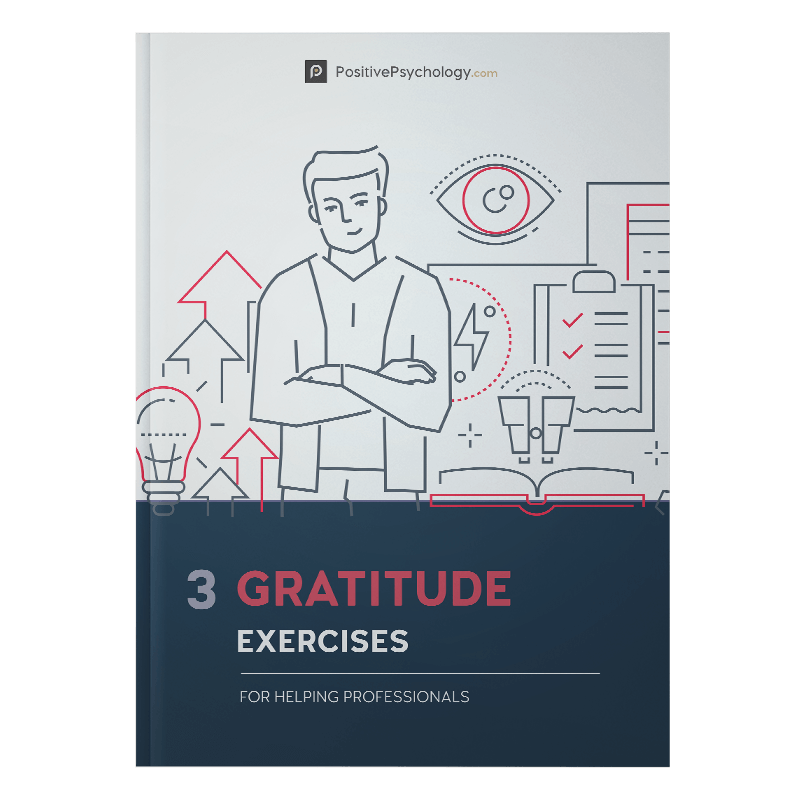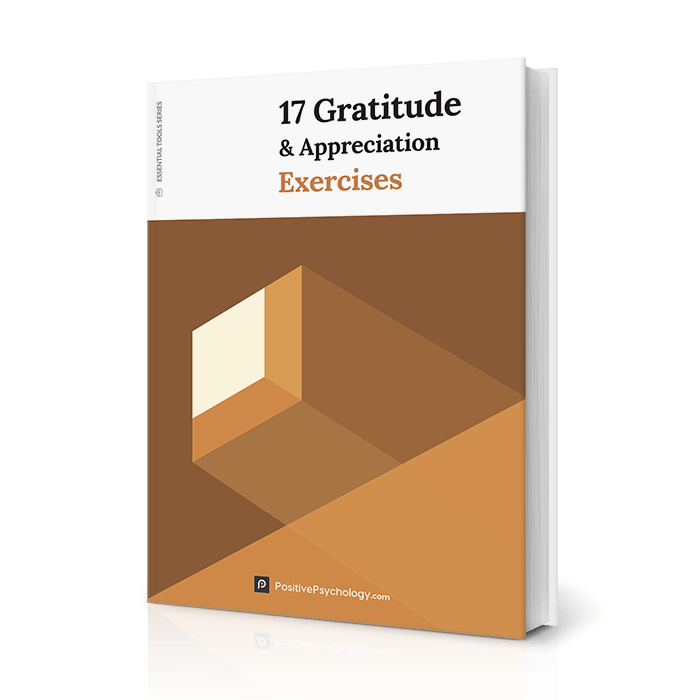 Are happy people grateful? Or are grateful people happy? This debate has been present since the time of Socrates. Studies have shown that gratitude is good for both your mental and physical health.
Are happy people grateful? Or are grateful people happy? This debate has been present since the time of Socrates. Studies have shown that gratitude is good for both your mental and physical health.
What we don’t know is why people wait to improve wellbeing with an intentional improvement of the practice of gratitude.
Studies show that the connection of gratitude to physical wellbeing is vital. One study, in particular, showed that gratitude is good for your heart (Mills et al., 2015). Gratitude lowers blood pressure, decreases stress, and improves sleep. Other studies have shown that a successful practice in gratitude can lessen symptoms of depression and anxiety. Improvements in gratitude improve humans.
Being aware of one’s level of gratitude could be the starting line for someone racing toward improved wellbeing. Grateful people are less inclined to feel resentment and envy. The higher the level of the experience of gratitude as an emotion, the more likely the instance of higher levels of positive affect.
Positive emotions broaden and enable the opportunity to build. Gratitude is a disposition that allows others to improve, as well. Perspective-taking and care for others improve when an intentional shift toward gratitude is taken. Let’s explore how we can start to measure gratitude.
Before you continue, we thought you might like to download our three Gratitude Exercises for free. These detailed, science-based exercises will help you or your clients connect to more positive emotions and enjoy the benefits of gratitude.
This Article Contains:
How Can We Best Measure Gratitude?
When beginning an exercise routine, one might want a baseline from which to start their fitness improvement. Starting a practice of gratitude should be no different. Knowing one’s current level of gratitude gives this same type of baseline from which to strive for improvement. Gratitude is a lifestyle, and practicing builds the mental muscles that show up as positive emotions.
So where does gratitude begin? An in-depth study of the development of gratitude in children (Hussong et al., 2019) gave great insight into the complexity of the construct of gratitude. Studies in adult gratitude have been more plentiful, but measures in children see a much-needed expansion. In kids, measuring the difference between concrete gratitude and connective gratitude is foundational.
Measuring gratitude in children proves to be a difficult task, as early ages show differences in the experience of the trait. Knowing whether the expression of gratitude is “felt” by the participants is challenging. Children are learning social conformity and manners taught by their parental guides. Gratitude, as a trait, grows like other cognitive components that present as moving targets in measurement.
When considering self and parental reports relevant to children’s gratitude, the following need to also be measured; empathy, positive affect, prosocial behavior, social competence, and emotional understanding. There is a great deal of confirmation bias when parents self-report and children do not always have the verbal ability to accurately self-report these areas either.
Awareness of the need to expand measures of gratitude as a trait in children is an exciting and expansive area of growth in the field. Measuring gratitude in adults has had a more robust history. Work by Watkins, McCullough, and Alleva, among many more researchers, has expanded the ability to measure trait gratitude, especially in adults. These assessments and scales are discussed and linked in a section below.
As conceptualization of gratitude varies among researchers, a broader scale for measurement was proposed (Morgan, Gulliford, & Kristjánsson, 2017). The Multi-Component Gratitude Measure seeks to identify more than previous measures have done. This measures the virtue of gratitude in 4 different components:
- Understanding of gratitude
- Emotions of gratitude
- Attitudes toward gratitude, and
- Behaviors of gratitude.
A deeper understanding of gratitude and its place in various cultures is important. As gratitude is subjective, so is its utilization across different groups of people. Studying this component will help researchers further understand the influence of culture on gratitude disposition.
Gratitude as an emotion is being measured to understand the spiritual aspects of the construct better. Merely stating “thank you” is not enough to practice the state that improves wellbeing (connective gratitude). Understanding awe and its contribution are also important.
Attitudes toward gratitude are important because they are developed subjectively throughout one’s lifespan. Inherently, children are more apt to express gratitude without prompting, which is interesting. We learn the ‘how’ as we develop but knowing that appreciation for one another may be instinctual is fascinating.
Behaviors of gratitude are where powerful interventions can be forged. Humans react differently to required and encouraged behaviors. The more choices one has to practice gratitude, the more likely they are to make that choice to continue mining for appreciation.
As further research on the topic of gratitude is performed, more scales will be developed. It is a rapidly growing area of study. Knowing the importance of gratitude and appreciation in the mental and physical wellbeing of humans makes improvement crucial to cultural and interpersonal development.
The Gratitude Questionnaire
The Gratitude Questionnaire (McCullough, Emmons, & Tsang, 2002) GQ-6 scale is one of the most frequently used assessments in gratitude. It was initially developed for use in research to measure people’s experience of gratitude as an emotion or affect. The scoring and norms showed various ranges of the experience.
This tool is a self-report questionnaire that measures the tendency to recognize, respond, and experience gratitude. Participants respond based on a 7-point Likert scale that ranges from (1) strongly disagree to (7) strongly agree. There are two negatively formulated items that are reverse coded. The scores range from 6-42, the higher numbers being correlated with higher gratitude disposition.
This questionnaire measures intensity, frequency, span, and density of gratitude as an emotion. Within these four facets, a person who experiences these in higher numbers elicits more gratitude as an affective state. This type of disposition presents in higher levels of self-reported life satisfaction.
The GQ-6 has been used in many research endeavors, including some that have questioned the difference between gratitude in adults vs. children. It has been translated into many languages and has proven to continue validity in measurement after translation.
Knowing where to start one’s practice of gratitude will improve the likelihood of continued practice if goals are set in place. Putting measurement to this practice makes that goal measurable as well. Setting a time frame for improvement in the practice also gives a practitioner a place to strive for in their daily practice.
A Look at the Validity of Gratitude Scales
Gratitude is a unique trait. Studies show that people with self-reported higher levels of satisfaction with life are correlated with the presence of gratitude as an affective state (Wood, Joseph, & Maltby, 2008).
In other words, people who can feel gratitude regularly, are more satisfied with their lives. Satisfaction with life can exist without the affective state of gratitude, but typically, this occurs when a successful person has no concept of that success being attributed to anything external.
Measuring gratitude shows a sort of moral barometer. When higher levels of gratitude are present, the more likely someone is to come to the aid of another. Many studies have been done in recent years, showing the relationship of gratitude while controlling for the Big Five of personality extraversion, agreeableness, openness, conscientiousness, and neuroticism. It’s reasonably intuitive with which of these five gratitude links well.
Continued research in gratitude shows that wellbeing is improved where higher levels of gratitude exist. The scales that are utilized in these studies are providing researchers with a better understanding of the role that gratitude plays in the subjective wellbeing of humans. Relationships and organizational behavior are key areas of cultural improvement concerning gratitude research.
Criticism of these scales could be argued, as not factoring in variance amongst race and socio-economic populations. A smaller portion of populations has been studied simply due to the access to a wider variety of study participants. A deeper understanding of how gratitude scales measure subjective wellbeing across population differences is warranted.
There is also research in the validity of adult scales being used to measure gratitude in youth. All three major scales GQ-6, GRAT (short form), and the GAC were found to show consistent validity among youth as appropriate measures for assessing levels of gratitude (Froh et al., 2011).
Research has shown that higher levels of gratitude are related to improved social integration and achievement in later adolescence. Having valid measures to improve gratitude interventions in youth populations is vital.
A Dutch study of the validation in the translation of the GQ6 and GRAT scales was done in recent years (Jans-Beken, Lataster, Leontjevas, & Jacobs, 2015). It proved the validity of the scales after translation to account for socioeconomic status and cultural accommodation. This translation has shown that gratitude is a universal language. Similar studies were done in these countries: Taiwan, Turkey, Japan, South Korea, and several others.
The BAS and the FAS have been validated in various countries. The need for further research in appreciation and gratitude concerning body image is warranted. With improvement in appreciation for functionality, improvements in self-care and body image are possible.
A deeper understanding of these concepts will aid researchers in developing interventions. These interventions in gratitude will help practitioners to improve their wellbeing by utilizing the knowledge gained in measuring these key concepts. Any improvement in these concepts helps to gain progress in the field of gratitude research.
5 More Useful Assessments and Scales
While there are many scales available, have a look at these that are most applicable to gratitude.
1. Gratitude Resentment and Appreciation Test
The GRAT or Gratitude Resentment and Appreciation Test was developed to measure someone’s dispositional gratitude. There are three different versions of this test. Watkins first created it in 2003.
This 44-question scale is based on the existence of 3 distinct characteristics of a grateful individual. The first is the lack of a sense of deprivation. The second is a tendency to appreciate simple pleasures. The third is the tendency to appreciate the contribution of others to one’s wellbeing and the ability to express that gratitude to others.
The revised version (which is a short-form) of this scale is a shorter collection of 16 items with a Likert-style response. The measure has shown good reliability, validity, and consistency. The scale can be used in a wide variety of interventions and research activities.
2. Gratitude Adjective Scale
The gratitude adjective scale or GAC has been used to investigate the subject of gratitude further. It measures, over time, the subjective experience of gratitude. Increased awareness of states of gratitude can help increase levels of life satisfaction.
Utilizing this scale gives practitioners the ability to see the change that a gratitude practice has over positive emotions over some time. By tracking and improving awareness, practitioners can see the improvement in real-time. When seeing positive results, a person would be more likely to grow and continue the practice.
3. Appreciation Scale
Here is another science-based quiz to assess your level of gratitude. This quiz was created for the Greater Good Magazine from the scale developed by psychologists Mitchell Adler and Nancy Fagley.
The Appreciation Scale was created in 2005 has been utilized in research to show the importance of the feeling of appreciation and its relationship with improved wellbeing. The assumption in the use of this scale is that appreciation subsumes gratitude.
This scale contains eight subclasses that covers the various areas of appreciation including: “have” focus, awe, ritual, present moment, self/social comparison, gratitude, loss/adversity, and inter-personal appreciation.
4. Functionality Appreciation Scale (FAS)
The FAS or Functionality Assessment is used in interventions for people with difficulties with body image (Alleva, Tylka, & Van Diest, 2017). A better appreciation for the functionality of one’s body, in addition to a better understanding of the effect that appearance has on that perception, is helpful for someone improving levels of self-care.
Cultural understanding of body image and the role of appreciation in that respect is expanding in research. The scale is seen below.
Please indicate the extent to which you agree with each of the following statements:
Strongly disagree
Disagree
Neither agree nor disagree
Agree
Strongly agree
- I appreciate my body for what it is capable of doing.
- I am grateful for the health of my body, even if it isn’t always as healthy as I would like it to be.
- I appreciate that my body allows me to communicate and interact with others.
- I acknowledge and appreciate it when my body feels good and relaxed.
- I am grateful that my body enables me to engage in activities that I enjoy or find important.
- I feel that my body does so much for me.
- I respect my body for the functions that it performs.
5. Body Appreciation Scale
The BAS or Body Appreciation Scale is another measure of body image. The scale has been adapted in many languages and utilized to study body image and cultural influence in many countries. A better understanding of the appreciation for one’s body, the higher the prediction of behaviors that can become problematic in various populations.
Utilization of this scale is a strengths-based approach. People suffering from body image difficulties become more aware of their perspective. Their appreciation for their body decreases problematic behaviors when paired with appropriate intervention strategies.
A Take-Home Message
Knowing that the spiritual principles embodied by ancient philosophers and leaders have root in science is exciting. As we know that gratitude increases immune response, lowers hypertension, lowers rates of depression and anxiety, and promotes happiness. Gratitude can be used as an intervention to enhance wellbeing. Knowing where you currently rate on your levels of gratitude can help to see where you need to improve.
Gratitude is like a muscle. The more you practice it, the stronger it becomes. It can become a way of life taking root in all aspects of how one spends their days. It is not a tool to be used to justify narcissistic behavior, but rather a connective force to unite one with the reality that humans are interconnected. We work together to improve the world around us.
Start an intentional practice by utilizing one of these scales to self-assess your current gratitude level. Then, improve the practice from that baseline. Record the positive emotions that follow the intentional practice. Observe as things begin to shift in your wellbeing.
Thanks for reading!
We hope you enjoyed reading this article. Don’t forget to download our three Gratitude Exercises for free.
- Alleva, J. M., Tylka, T. L., & Van Diest, A. M. K. (2017). The Functionality Appreciation Scale (FAS): Development and psychometric evaluation in US community women and men. Body Image, 23, 28-44.
- Froh, J. J., Fan, J., Emmons, R. A., Bono, G., Huebner, E. S., & Watkins, P. (2011). Measuring gratitude in youth: Assessing the psychometric properties of adult gratitude scales in children and adolescents. Psychological Assessment, 23(2), 311-324.
- Hussong, A. M., Langley, H. A., Thomas, T. E., Coffman, J. L., Halberstadt, A. G., Costanzo, P. R., & Rothenberg, W. A. (2019). Measuring gratitude in children. The Journal of Positive Psychology, 14(5), 563-575.
- Jans-Beken, L., Lataster, J., Leontjevas, R., & Jacobs, N. (2015). Measuring gratitude: A comparative validation of the Dutch gratitude questionnaire (GQ6) and short gratitude, resentment, and appreciation test (SGRAT). Psychologica Belgica, 55(1), 19-31.
- McCullough, M. E., Emmons, R. A., & Tsang, J. A. (2002). The grateful disposition: A conceptual and empirical topography. Journal of Personality and Social Psychology, 82(1), 112-127.
- Mills, P. J., Redwine, L., Wilson, K., Pung, M. A., Chinh, K., Greenberg, B. H., … Chopra, D. (2015). The role of gratitude in spiritual well-being in asymptomatic heart failure patients. Spirituality in Clinical Practice, 2(1), 5-17.
- Morgan, B., Gulliford, L., & Kristjánsson, K. (2017). A new approach to measuring moral virtues: The Multi-Component Gratitude Measure. Personality and Individual Differences, 107, 179-189.
- Wood, A. M., Joseph, S., & Maltby, J. (2008). Gratitude uniquely predicts satisfaction with life: Incremental validity above the domains and facets of the five factor model. Personality and Individual Differences, 45(1), 49-54.
Let us know your thoughts
Read other articles by their category
- Body & Brain (49)
- Coaching & Application (57)
- Compassion (26)
- Counseling (51)
- Emotional Intelligence (24)
- Gratitude (18)
- Grief & Bereavement (21)
- Happiness & SWB (40)
- Meaning & Values (26)
- Meditation (20)
- Mindfulness (45)
- Motivation & Goals (45)
- Optimism & Mindset (34)
- Positive CBT (28)
- Positive Communication (20)
- Positive Education (47)
- Positive Emotions (32)
- Positive Leadership (18)
- Positive Parenting (4)
- Positive Psychology (33)
- Positive Workplace (37)
- Productivity (16)
- Relationships (46)
- Resilience & Coping (36)
- Self Awareness (21)
- Self Esteem (37)
- Strengths & Virtues (31)
- Stress & Burnout Prevention (34)
- Theory & Books (46)
- Therapy Exercises (37)
- Types of Therapy (64)





What our readers think
hello, Could anyone tell me what the GRAT-short form scoring means? Does it go something like, “Higher the score, higher is the gratitude?”
Hi Namrata,
Yes, that is correct. As you can also see here, you can also assess subscales, such as “Appreciation for Others (AO)”. This depends on your research question.
Kind regards,
Julia | Community Manager
Is it freely available for theis?
Hi Namrata,
which scale are you interested in using? In general, the tests are accessible to individuals engaged in research, hence you should be able to access them without any issues.
Hope this helps!
Kind regards,
Julia | Community Manager
Hi,
Thank you for your reply.
I want to use GRAT-Short Form for my master’s thesis. Can I use it without any copyright restriction if I properly cite the tool or I need to ask for permission? If yes where can I find the tool?
Hi again Namrata,
The scale is freely available to use and a copy of it with scoring information can be accessed here.
All the best with your master’s thesis!
Kind regards,
Julia | Community Manager
Thank you!
Thank you for the scale.
I’m a bit confused on the likert scale response. What will be in likert points 4 and 6 of the response? Could you provide me with the details of the 9-point likert scale response of GRAT-Short Form?
Hi Namrata,
Let me clarify this for you. These are the detailed points of the 9-point Likert scale:
1. I Strongly Disagree
2. I Disagree
3. I Somewhat Disagree
4. I Slightly Disagree
5. Neutral
6. I Slightly Agree
7. I Somewhat Agree
8. I Agree
9. I Strongly Agree
I hope this helps!
Kind regards,
Julia | Community Manager
I am so grateful for the knowledge you have share and the value I received.
Thank you.
Hi Kelly
May I get the gratitude questionnaire for my research work with validity and reliability? If so from where I will get it?
Thanks and regards
Tresa
Hi Tresa,
You’ll find information on their reliability and validity in the original paper by McCullough et al. (2002).
Hope this helps!
– Nicole | Community Manager
Madam ,
Can I have a scale to measure gratitude of nursing students
Hi Gertrude,
Thanks for your question. The GRAT Scale (Gratitude Resentment and Appreciation Test) has been tested on student populations and shown good validity and reliability. See more here. This could be a suitable scale for your research.
Kind regards,
-Caroline | Community Manager
Can we use GQ-6 for in research study?
Hi Shah,
Yes, this scale is freely available to use for research.
– Nicole | Community Manager
Happy to know about your work in Gratitude. Looking forward Kelly,
For more interactions regarding Gratitude.
Thanks & Regards
CHAKRA R.PRABAKARAN
Thank you Kelly!
Very concise and easy to understand!
Hi Ann Marie,
Glad you found this post helpful! Thanks for reading.
– Nicole | Community Manager
Yes, I was not surprised for the quiz results I got from level of gratitude. I know who I am and how I eventually grew up to be spiritual rather than religious, which I believe it ranged to the extreme at an earlier age in my life. Anyway thank you for the free quizzes. Kind regards.
Thank you for this. Pls. continue sharing and helping people. God bless.